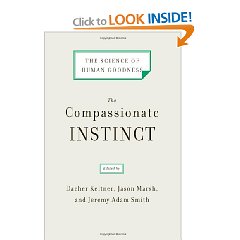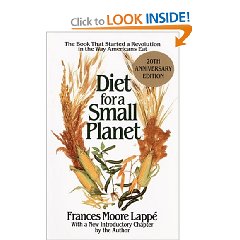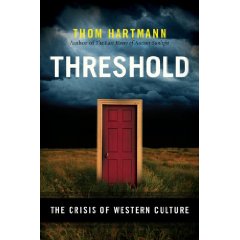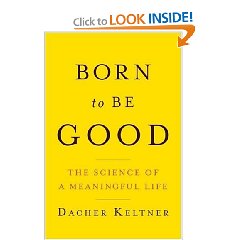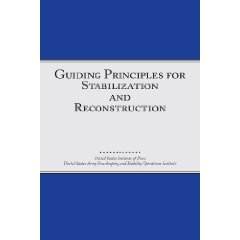
At its most fundamental this is without question the most extraordinary sensible and useful synthesis of all possible documents devoted to the subject, offering up a truly remarkable–just an amazing–framework for study and for planning.
The publisher failed to make full use of the Amazon tools for showing the Table of Contents at a minimum, and this error should be corrected immediately. Inside the Book is also recommended. I would normally reduce the book to four stars for its failure include all those outside the “traditional” national security community; for its lack of an index, and for its ignorance of most relevant books outside the narrow circle of stabilization & reconstruction groupies. However, this is such an incredibly gifted, intelligent, and meticulous presentation of vitally important information that I leave it at six star special, beyond five stars.
Still, to not be able to see in an index every page for key words like “water” or “intelligence” is infuriating.
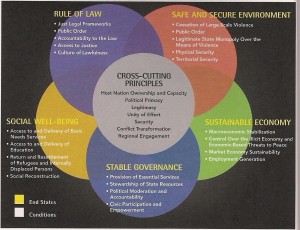 First, an overview of the contents, vastly more simple than the complex array of information presented in sub-sets of conditions, guidance, approach, and then elements.
First, an overview of the contents, vastly more simple than the complex array of information presented in sub-sets of conditions, guidance, approach, and then elements.
+ Introduction
+ Strategic Framework for Stabilization and Reconstruction
+ Cross-Cutting Principles
+ High-Level Trade-Offs, Gaps, and Challenges
+ Fundamentals of a Comprehensive Approach
+ End States
—Safe and Secure Environment
—Rule of Law
—Stable Governance
—Sustainable Economy
—Social Well-Being
+ Appendices
A. Resources List
B. Participants in Review Process
C. Summary of Strategic Frameworks Surveyed
D. Snapshot of COmpoments from Overarching Resources
E. Acronyms and Glossary of Selected Key Terms (incomplete, another annoyance that needs to be corrected)
Continue reading “Review: Guiding Principles for Stabilization and Reconstruction (Paperback)”

